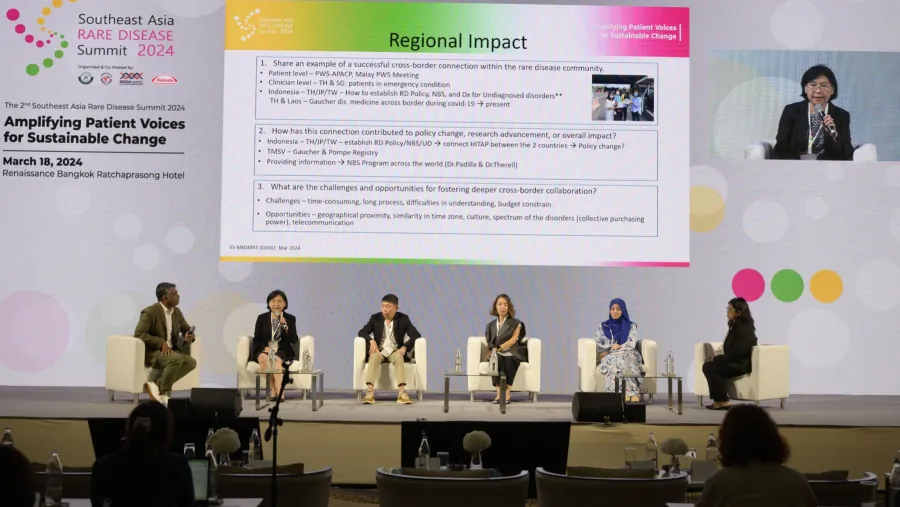
Why rare disease policies are critical to ensure equitable access to treatment for rare disease communities in Southeast Asia
Patient empowerment and policy change were emphasised as key points to address during the 2nd Southeast Asia Rare Disease Summit.
From delayed diagnoses and limited access to specialists to funding gaps and disparities in healthcare infrastructure, the journey towards effective rare disease management is riddled with hurdles that demand urgent attention and innovative solutions.
The 2nd Southeast Asia Rare Disease Summit was held recently in Bangkok to address the complex challenges posed by rare diseases and strive to drive improvement for patients. Key stakeholders from diverse sectors, ranging from patient advocacy groups and caregivers to policymakers, clinicians, researchers, industry representatives, payers, and regulators, gathered once again for the summit. This summit serves as a pivotal platform for stakeholders to address pressing issues, exchange insights, strategise meaningful advancements, and share best practices to improve diagnosis, access to treatment, and drive patient empowerment with the aim of amplifying the patient voice for sustainable change.
During a panel moderated by Michelle Erwee, Global Head of Access to Medicines at Takeda, discussions focussed on identifying ways to ensure sustainable diagnosis and access to innovative treatment for rare disease patients. Five regional experts agreed that some of the key challenges are awareness amongst both patients and medical professionals, delay in diagnosis, as well as sustainable access to treatments. In addition, continued partnerships and collaborations were highlighted as the key measures to ensure government funding and support ongoing sustainable access to treatment and care.
Patient-centric diagnosis model is essential to help the rare disease community
“In the field of rare diseases, the most important challenge is for primary healthcare providers to recognise symptoms of rare diseases so that referrals can be made for the appropriate diagnosis. Physician education and awareness are crucial. Screening programmes at the population level or in specific high-risk groups are also essential,” Associate Professor Joyce Lam, Senior Consultant, Haematology and Oncology Service at KK Women’s and Children’s Hospital, said.
Dr Tae Sok Kun, Head of Genetics and Metabolism Unit, Department of Paediatrics, University Malaya, stated that in Malaysia, there are less than 15 clinical geneticists mainly located in the central region, Kuala Lumpur and Pulau Pinang.
“Thus, many patients will be reviewed by general practitioners who may have less awareness on rare diseases, resulting in misdiagnosis or delayed referrals to the appropriate centre,” Dr Tae said.
This is why a patient-centric model and a comprehensive framework with screening and diagnostic programmes, genetic testing and increasingly genomic sequencing, and rare disease centres are important, Dr Durhane Wong-Rieger, President of Asia Pacific Alliance of Rare Disease Organisations added.
“This includes access to treatment including surgery, medicines, and support care, patient registries, and support for patient organisations. Most plans start with screening and diagnosis and networking and training of health professionals with funding for treatments and support care,” Dr Wong-Rieger stated.
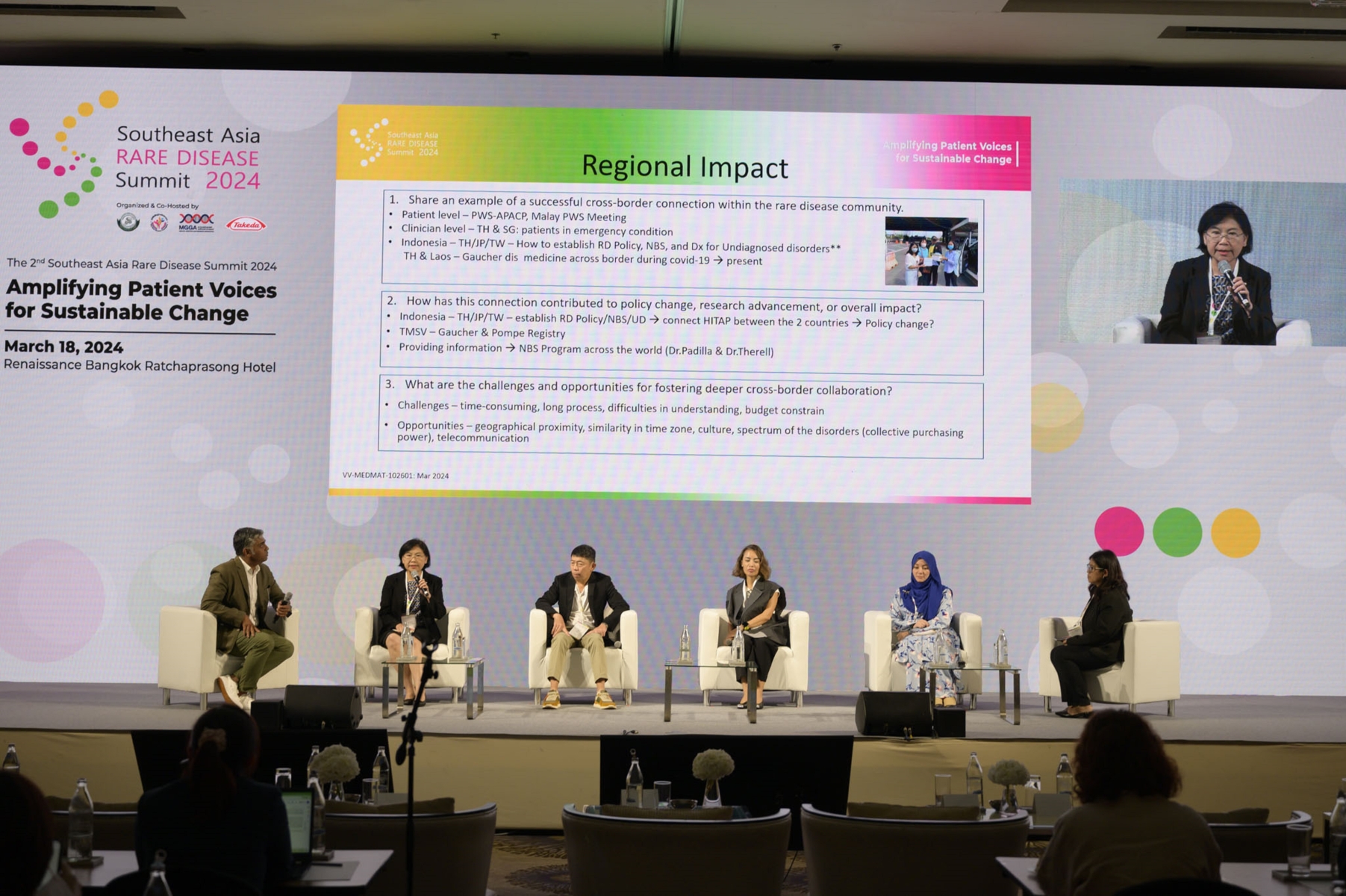
Strengthened patient access and partnerships are key to driving change
Cost is another challenge, which all panellists agreed is a major hurdle. According to the Noonan Syndrome Awareness Association, parents of rare disease patients in Asia Pacific suffer from economic pressure caused by rare conditions of their children, with 29% of parents forced to work extra or second jobs to cope with costs whilst 45% are unable to cope.
Recognising these challenges, five rare disease patient advocacy groups – Thai Rare Disease Foundation, Malaysia Rare Disorders Society, Philippines Society for Orphan Disorders, Indonesian Rare Disease Foundation and Rare Disorders Society (Singapore) – aligned at the summit to form the ASEAN Rare Disease Consortium (ARdC) to share best practises and engage in conversations with stakeholders to empower patients. Additionally, the ARdC will also be involved in driving collaboration and partnership discussions with both payers and governments to address sustainable access to and reimbursement of medicines.
In Singapore, Associate Professor Lam stated that in 2019, the Ministry of Health and SingHealth Fund set up the Rare Disease Fund (RDF) which is supported through public giving. Every $1 received is matched by $3 from the government to boost the impact of this charity fund for the rare disease community.
Strong public and private partnerships are also needed to tackle challenges in rare disease management and policymaking, especially when it comes to putting rare disease policy on the national agenda and developing concrete plans to support the rare disease community.
According to Dr Carmencita Padilla, Emeritus Professor, College of Medicine, University of the Philippines, Manila, strong partnerships between health authorities, the healthcare sector, and the academia are essential for the establishment of an integrated policy roadmap for rare diseases. Strong patient advocacy and support are also essential to drive actions and to continue discussions around challenges in funding, diagnostic tests, and treatment.
“To sustain year-round interests, there must be regular activities, no matter how simple, every month or quarterly. This could be one-hour sessions on specific topics, not necessarily medical, but could be a mix,” Dr Padilla added.
“The panel provided the region a much-needed dialogue to discuss the transformative potential of healthcare access in improving rare disease patient outcomes. Through similar conversations, we can strategise on how to ensure equitable access to treatments and therapies, securing a patient-centric future for the rare disease community,” said Associate Professor Cherdchai Nopmaneejumruslers, Chairman of the Working Group on the Development of Rare Disease Healthcare Services, NHSO, and Deputy Dean of Service Innovations and Corporate Value, Mahidol University.
“The rare disease community is by far one of the most vulnerable patient communities in the world. It is truly encouraging to see the commitment from regional experts on identifying tangible solutions that can ensure that no rare disease patient gets left behind,” added Erwee.
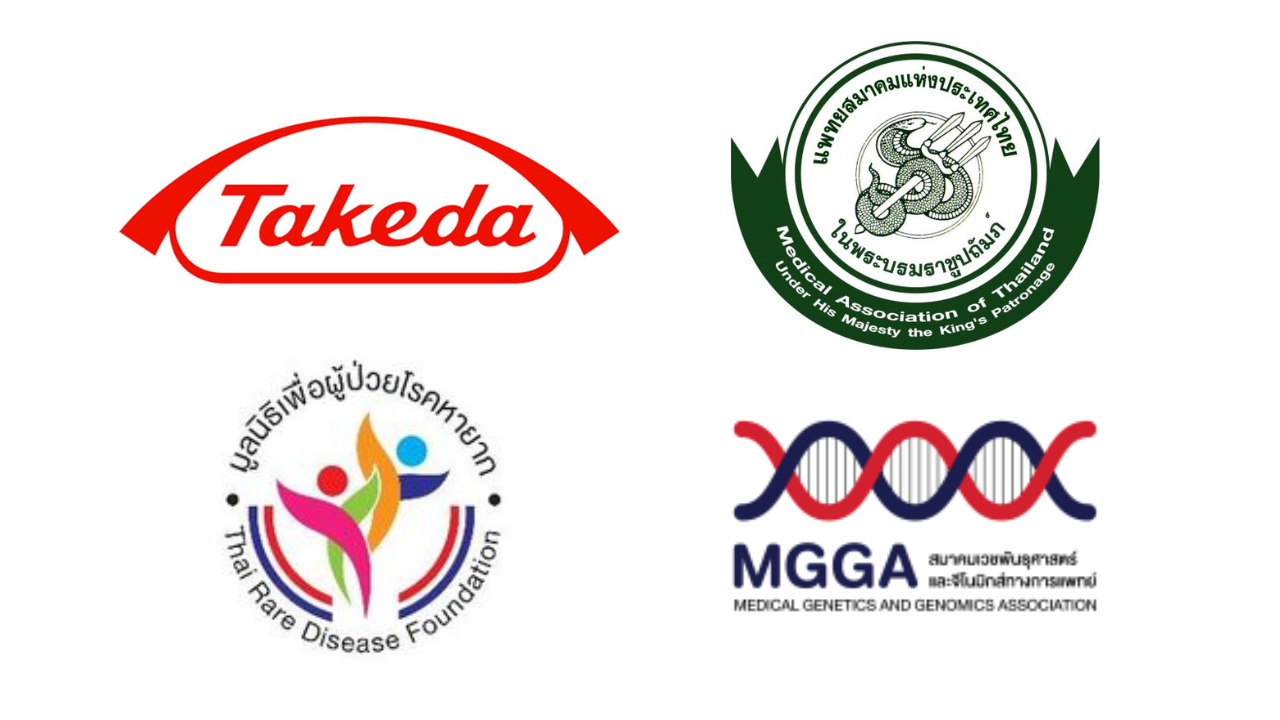



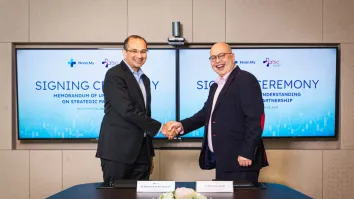
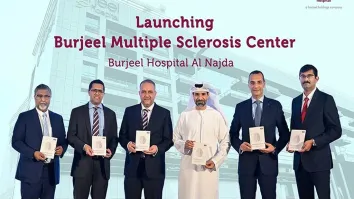



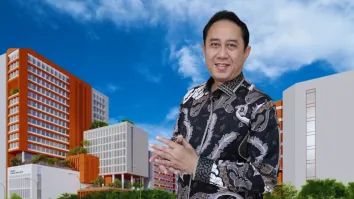
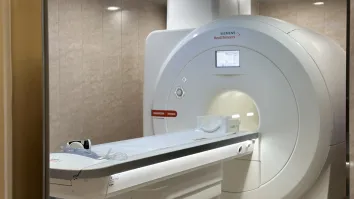



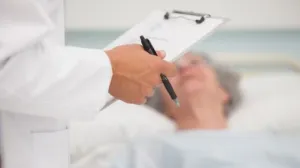





 Advertise
Advertise






